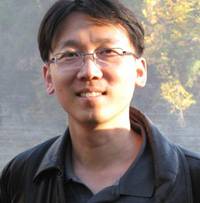National Science Foundation award boosts stress, adaptation research

Posted by Jayme Blaschke
University News Service
March 8, 2016
Hong-Gu Kang, assistant professor of biology at Texas State University, has been awarded a National Science Foundation grant for future research looking into the relationship between stress and adaptation in plants.
The five-year Faculty Early Career Development Program (CAREER) grant was awarded through the NSF Directorate for Biological Sciences. It marks the second such grant received by Texas State faculty in 2016. In January, Todd Hudnall, assistant professor of chemistry, received a CAREER grant for research with organic radicals.
“Transposable elements (TEs) comprise the major portion of eukaryotic genomes, although their functional contribution is still one of biology’s biggest mysteries,” Kang said. “We found, however, that TEs rapidly respond to pathogen infection, suggesting that TEs play important roles in response to stress, and that their activity potentially leads to stress adaptation.”
The $786,000 grant will fund Kang’s research project, titled “Characterization of epigenetic factors and their regulatory roles in modulating transposable elements, plant immunity and transgenerational inheritance.”
“Imagine if you can manipulate the evolution speed of plants or also animals,” Kang said. “My research program will aim to provide a key(s) to make such science fiction a reality.”